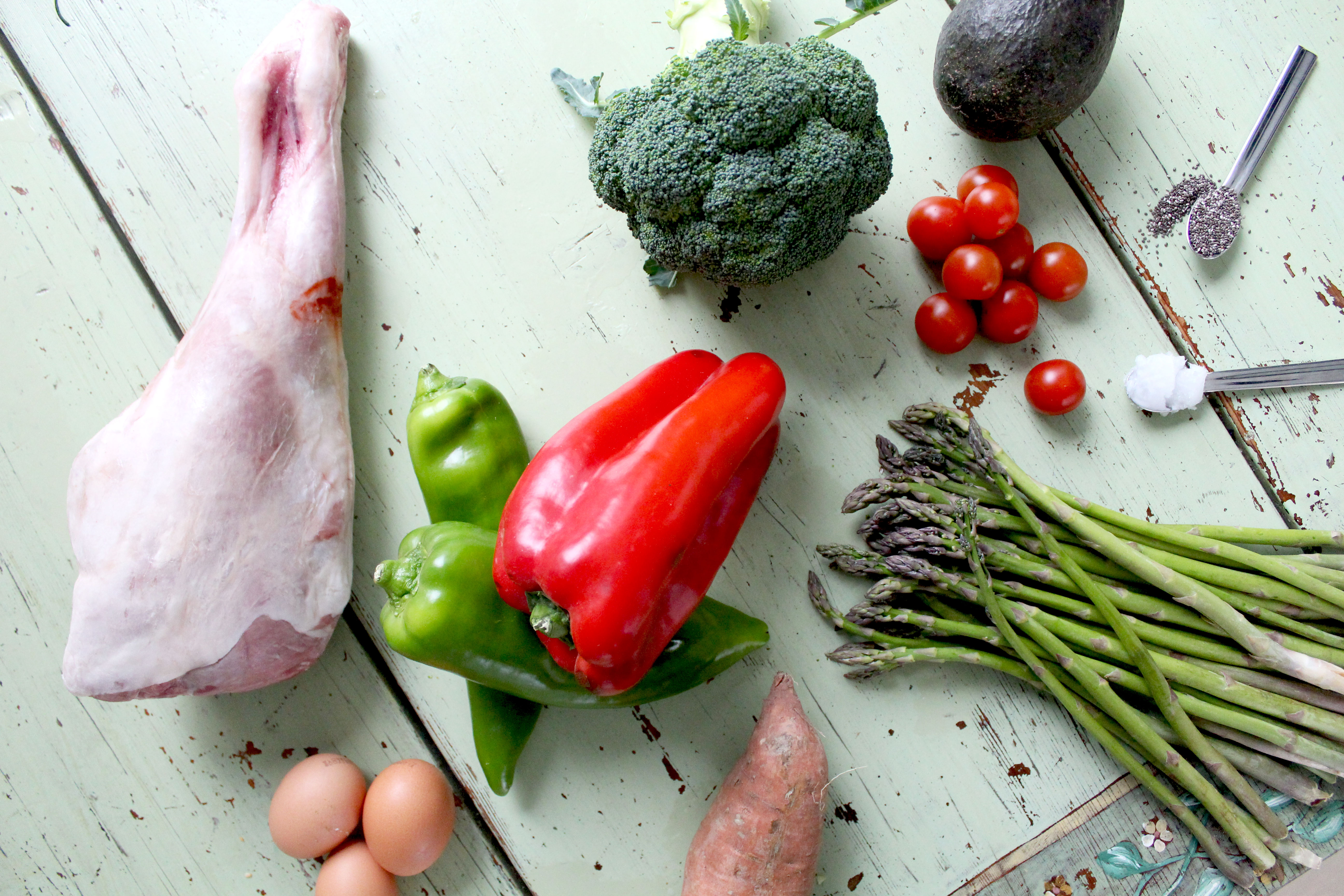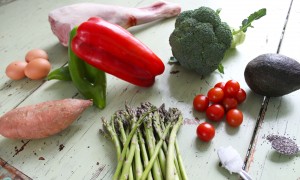Estimated reading time: 4 minute(s)
A natural and healthy diet focuses on eating whole, organic and non-processed foods, without cultivating any media appropriated fears, like the fear of fat. There is a wide variety of foods to choose from: organic meat from grass-fed animals, wild fishing, game meats, healthy fats, eggs, vegetables, fruits and seeds. And depending on the level of tolerance of each individual, the consumption of dairy products such as butter, yogurt or kefir can be introduced, provided they come from milk from grass-fed cows and are organic and not skimmed or refined.
Below, you have an extensive list of healthy products that you can consume without restrictions or regrets, and which can help you to achieve an excellent start with your natural lifestyle.
What are the best foods for nourishment?
ECOLOGICAL MEATS: Today the vast majority of people go to supermarkets to buy meats of all kinds. There is a big difference between meats that come from farm animals, primed with feed made from mixing different cereals, lowering the maintenance costs of the animal and getting the animal to fatten quickly and those that are naturally grass fed. It is always important to note that meat, regardless of the animal from which it comes, must always be organic and grass-fed meat. It is a much more ethical way of eating for the animal and the meat becomes higher in nutrients and flavor.
- Birds: turkey, chicken, goose, duck, pheasant, quail, ostrich, emu.
- Pigs: pork, bacon, wild boar
- Cattle: beef, bull, ox, buffalo, bison.
- Sheep: Lamb.
- Deer: Deer, elk, reindeer.
- Goat
- Rabbit
- Exotic: kangaroo, turtle.
FISH AND SEAFOOD: Fish and shellfish are very important proteins in any healthy diet, the idea is to consume wild caught fish. The difference between fishing fish and farmed fish is vast because the latter have high amounts of contaminants, disinfectants and antibiotics that impact their nutritional value and can also harm our health.
- White fish: Cod, hake, rooster, pout, sole, turbot, redfish, monkfish, maruca, scorpion, conger, etc.
- Blue fish: Salmon, tuna, bonito, sardines, anchovy, trout, herring, swordfish, mackerel, etc.
- Seafood: shrimp , prawns, clams, mussels, lobster, etc.
EGGS: You can enjoy all kinds of eggs because they are very rich in nutrients. Of course, opting for unpasteurized, organic, freely raised eggs will always be the best option.
VEGETABLES AND MUSHROOMS: Almost all vegetables are allowed, although you have to eat more starchy vegetables, like green peas or potatoes, in moderation.
- Fruits: Eggplant, pepper, chillies, squash, tomato, zucchini.
- Bulbs: Onion, leek, dried garlic, chives.
- Green leaves and stems: Chard, chicory, thistle, endive, endive, lettuce, spinach, parsley, celery, cabbage, Brussels sprouts, kale, seaweed.
- Flower: Artichoke, cauliflower, beet leaves, broccoli, broccolini.
- Young stems: Asparagus, young garlic.
- Roots: Carrot, turnip, radish.
- Fungi: mushrooms, portobello, crimini, shiitake, enoki.
HEALTHY STORED VEGETABLES: We must consume them in moderation, since the starch is transformed into glucose within our body, such as: sweet potato, beet, yucca / tapioca, malanga / occumo / yam.
FRUITS: Fruits are not only delicious but also good for health. However, fruits are rich in fructose – a type of sugar that is naturally occurring – so we should eat them in moderation and focus our consumption on fruits low in starch and sugar.
Keep in mind that fruits and vegetables should be the main source of carbohydrates of any healthy diet:
- European: apple, blackberry, peach, plum, nectarine, blueberries, grapes, lemon, strawberry, watermelon, melon, raspberry, figs, tangerine, orange, berries.
- Tropical: avocado, papaya / milky, nectarine, mango, pineapple, lime, banana, coconut.
- Asian: Dragonfruit, guava, mangosteen, durian.
- African: Date, baobab, maboque
DRIED FRUITS: Nuts have a lot of nutritional value, but they are also high in fat. Although they are good fats for the body, you should consume them in moderation, adding small portions to your meals or for a snack. And here’s a fun fact, the peanut is not really a dried fruit but a legume.
- Seeds: pumpkin, sunflower, sesame.
- Nuts: common nut, Brazilian nut, macadamia, pecans.
- Almonds
- Cashew Nuts
- Hazelnuts
- Pistachios
FATS: Contrary to what has been believed for a long time, fat is not harmful to health, it is beneficial and necessary for our body and they are a source of quality energy.
The fats that should be avoided are hydrogenated and trans fats .
- Oils: olive, coconut, avocado, macadamia nut, almonds, etc.
- Fish oil.
SPICES AND HERBS: Sea salt, Celtic salt or pink salt from the Himalayas can be used to season foods. As well as seasonal spices and herbs that are obtained fresh, like: oregano, parsley, basil, good herb, mint, coriander, thyme, dill, rosemary, bay leaf, etc. You will see that these natural and healthy spices will always add or accentuate flavors to your dishes.
CONDIMENTS: Grain mustard, quality vinegar – such as apple or balsamic cider – olives, pickles, capers, tomato sauce, tamari and oyster sauce can all be consumed as long as they do not contain sugar, preservatives or other chemical additives.
TO BAKE: Almond flour, cashew flour, nut flour, among others, coconut flour, tapioca and / or chestnut flour can be used to prepare desserts, cakes, pies and other pastry products in moderation and occasionally. In this way we avoid the use of refined and ultra-processed flours that are so harmful to our health.
What foods should we avoid?
CEREALS: Avoid eating any type of cereal, since they are high in simple carbohydrates that raise blood sugar levels, release insulin and, as a consequence, the body cannot burn fat efficiently. In addition, cereals have lectins that affect digestion and nutrient absorption. These include: wheat, spelled, corn, millet, rye and rice.
VEGETABLES: Like cereals, legumes contain antinutrients – such as lectins – that cause inflammation of the intestine, prevent digestion and consequently the body cannot be properly nourished, so it is important to avoid consuming them. Legumes are:
- Beans: beans, beans, beans, beans, beans, beans, among others.
- Lentils
- Soy and miso.
- Green peas
- Other legumes: peanut and lupine.
SUGAR AND REFINED CARBOHYDRATES: Pasta, bread, pastries, white sugar, biscuits, artificial sugar, artificial corn syrup, soft drinks and pasteurized juices are not allowed in a natural and healthy diet due to their low nutritional benefits and the havoc they cause in blood sugar levels.
HYDROGENATED FATS: Canola, soy, corn, sunflower or vegetable oil, margarines and other products made with these fats or that contain them in their ingredients are not recommended when eating a healthy diet, since they are made by modifying food molecules to create trans fats . Eating these fats lowers good cholesterol levels and produces more bad cholesterol, also causing inflammation in the body.
What can we eat occasionally?
DAIRY: In most human beings, the enzyme that has the ability to digest lactose – the sugar present in milk – ceases to exist in our body after the lactation period ends. In the adult phase, milk products, unable to be digested properly , are fermented in the intestine causing discomforts such as inflammation and gases. Normally, we should avoid them if we suffer from any gastric disease but, if we are in good health and have no sensitivity to lactose or casein – milk protein – then a little dairy is beneficial.
Dairy products such as butter, yogurt, kefir – the product of fermented milk -, cured cheeses, cream and ricotta cheese are some of the options we can choose if we want to consume foods derived from milk.
They must be organic and not skimmed or refined, so they will be healthier and richer in nutrients. Although dairy can also be consumed fermented, rich in probiotics , which are good bacteria for your over-all health.
NATURAL SUGAR: Honey, maple syrup, molasses, dried fruit, dark chocolate, coconut sugar, rice or date syrup can be used to prepare desserts or sweeten breakfast, but always in moderation.
ALCOHOLIC DRINKS: Within any healthy lifestyle you try to avoid processed foods and the toxins they have. Alcohol is processed and toxic to the body, it dehydrates us and we stop burning fat after ingesting it. Drinks such as beer are made from wheat and other cereals, as are other white alcoholic beverages and pomace that come from the fermentation of other sugars and / or grains. However, red wine is allowed in moderation because of its high content of powerful antioxidants such as resveratrol.
PSEUDO GRAIN: Pseudo grain is the name by which those seeds of dicotyledonous plants – quinoa, amaranth, chia and buckwheat are categorized. These increasingly common seeds are ideal for replacing cereals . However, they also have a small amount of starch, so it is better to consume them mindfully.
We hope this article is complete enough so that you can all get an idea of the foods we really need to be well nourished.










